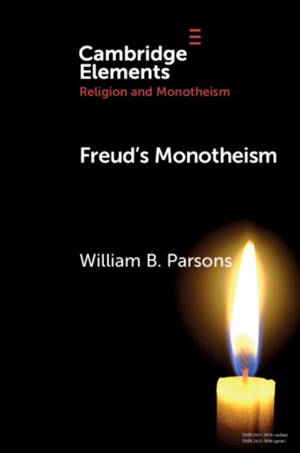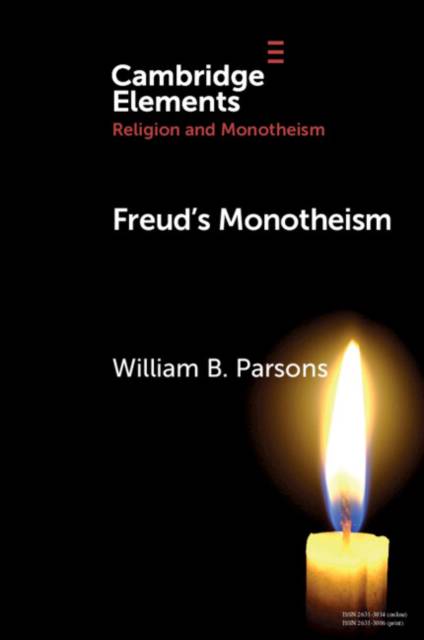
- Afhalen na 1 uur in een winkel met voorraad
- Gratis thuislevering in België vanaf € 30
- Ruim aanbod met 7 miljoen producten
- Afhalen na 1 uur in een winkel met voorraad
- Gratis thuislevering in België vanaf € 30
- Ruim aanbod met 7 miljoen producten
Zoeken
€ 33,45
+ 66 punten
Omschrijving
This Element consists of three interrelated parts. 'What Freud Said' summarizes the salient details of Freud's psychology of religion: his views on the origins and development of western religions; on contemporary western monotheisms; on the 'unpsychological' proceedings of the religio-cultural super-ego; his qualified endorsement of religious forms of psychotherapy; and his cursory analysis of eastern religions.'What Freud got Wrong' surveys the history of the multidisciplinary critiques (anthropological, sociological, later psychoanalytic, theological/philosophical) that have been levelled at his interpretative strategies. 'Towards a Revised Psychoanalytic Theory of Religion' suggests that the best way forward is to employ a psychoanalytic theory of religion which, taking its cue from the history of its critique, houses reflective, inclusive and dialogical elements. It presents illustrations taken from a variety of contemporary religio-cultural phenomena (marvel movies; issues concerning religion, sexuality and gender; the Megachurch; QAnon) as portable lessons for such applications.
Specificaties
Betrokkenen
- Auteur(s):
- Uitgeverij:
Inhoud
- Aantal bladzijden:
- 82
- Taal:
- Engels
- Reeks:
Eigenschappen
- Productcode (EAN):
- 9781108826518
- Verschijningsdatum:
- 26/01/2023
- Uitvoering:
- Paperback
- Formaat:
- Trade paperback (VS)
- Afmetingen:
- 152 mm x 229 mm
- Gewicht:
- 122 g

Alleen bij Standaard Boekhandel
+ 66 punten op je klantenkaart van Standaard Boekhandel
Beoordelingen
We publiceren alleen reviews die voldoen aan de voorwaarden voor reviews. Bekijk onze voorwaarden voor reviews.







